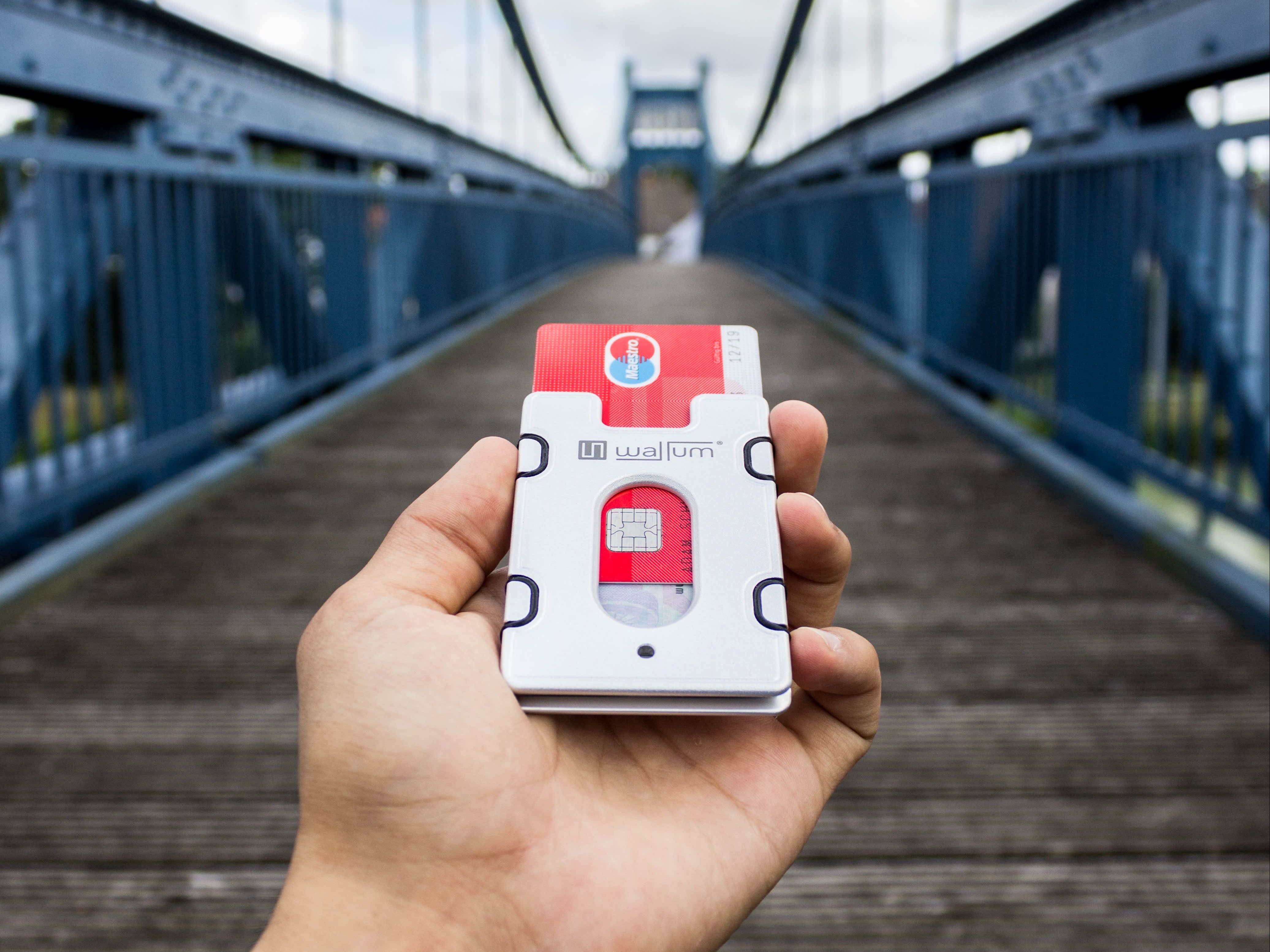How to open a bank account in Spain as an expat
Discover how to open a Spanish bank account (online), what you need to open a bank account in Spain and whether you need a NIE number.
Tirza
Opening a bank account in Spain as a non-resident might sound like a time-consuming task, but it shouldn’t be. Spain is home to a great number of internationals. The banking system's used to offering its services to internationals. Let's break down how the Spanish bank system works and how you can open your own Spanish bank account in no time.
Can a foreigner open a bank account in Spain?
Although it isn't compulsory to have a Spanish bank account when you’re (temporarily) living in Spain, it’s useful to have one. You can use a Spanish bank account to pay your rent and utilities in Spain.
The banking system in Spain is comprehensible, even when you’re a foreigner.
There are 2 types of bank accounts in Spain:
- a residents account (for people who live in Spain)
- a non-residents account (for people who live abroad)
It’s up to you to decide which account you prefer. Keep in mind that a resident’s bank account gives you more flexibility, where the non-residents’ account is easier to open.
When opening an account you can choose the following:
- Cuenta bancaria o Cuenta corriente (current account) – the most standard account that you can use for your everyday expenses, like groceries or going out for dinner.
- Cuenta de ahorros (savings account) – the account to put your savings on as it offers interest on your money.
- Cuenta nomina (salary account) – this account's meant to receive your paycheck from your employer.
- Cuenta de depósito (deposit account) – this's like a savings account, but with fewer options for accessing the money. For funds that need to be held securely.
In all cases, feel free to contact your bank to understand what type of account suits you best.
How to open a bank account in Spain

Since many banks may not have English-speaking staff, consider scheduling an appointment with someone who speaks English or bringing along a translator, such as a fluent friend, to assist you.
To open your resident account, you need the following documents:
- A valid identity card (e.g. your passport)
- A valid Spanish address (your empadronamiento)
- Your NIE number (Número de Identificación de Extranjero), as a proof you’re officially registered in Spain
- Proof of your employment status (e.g. employee contract or student card)
Remember, documents not in Spanish will need official translation by a authorized translator.
If you plan to visit the branch to open your bank account, remember that in Spain banks typically are open from 09:00 to 14:00, Monday to Saturday. Many banks don't have English speaking employees. So make sure to bring someone who can speak Spanish to help you out or try to learn some Spanish by yourself.
Opening a bank account in Spain for non-residents
Opening a bank account in Spain as a non-resident is a relatively straightforward process, but it does require certain documents and steps to be completed. While not all Spanish banks offer accounts for non-residents, big names like Santander, BBVA, and Banco de Sabadell do provide bank account for non-residents.
To open a non-resident bank account in Spain you'll need to gather following documents:
- ID card: A valid passport or national identity card for EU citizens.
- Proof of address: A document confirming your address, like a recent utility bill or bank statement. If you're unable to provide a Spanish address, you may need a certificate of non-residency.
- Proof of income: Documentation showing your source of income, such as payslips, tax returns, or a letter from your employer.
- Non-resident confirmation: A letter confirming your non-resident status, which you can get from a police station or foreign office.
If you're abroad, you can apply for the non-resident confirmation letter at a Spanish Consulate in your home country. The letter takes approximately 1 week to be issued and is valid for 3 months.
You also need to make sure that any documents not in Spanish are translated by an authorized translator.
Remember that specific requirements and procedures may vary depending on the bank and your individual circumstances. It's always a good idea to contact the bank directly or visit their website for detailed information before opening a bank account in Spain for non-residents.
How to open bank account online in Spain

To open a bank account online in Spain, simply visit the website of your preferred Spanish bank. Then, simply follow the steps below to open your bank account online:
- Fill out the online application form.
- Upload required documents mentioned above.
- Agree to terms and conditions.
- Receive confirmation and set up your account.
- Activate your account and start banking online
Many Spanish banks let you open an account online, which usually takes just 10 minutes. If you face any issues during the process, just contact the bank's customer service for assistance.
Which Spanish bank is best for non-residents?
Santander is one of the best Spanish banks for non-residents. Being the largest banking group in Spain with a wide-reaching international presence, it's renowned for its reliability and trustworthiness. Santander offers the Non-Resident Mundo Account specifically tailored for non-residents. With their user-friendly online banking app, you can easily open new accounts, transfer money, and manage payments—all from one convenient place. This flexibility makes Santander an excellent choice for non-residents. They provide multilingual customer service and convenient online banking options. Plus, Santander's non-resident account stands out as one of the most affordable options, with a monthly fee of just €16.
The best Spanish bank accounts for expats

Which bank works best for you depends on your personal situation. The Spanish banking system offers around 140 different (online) banks, so there’s plenty to choose from!
Here are some popular banks that you can consider:
- BBVA Bank Spain: Being the 2nd-largest bank in the country, opening an account at BBVA bank might be the right fit for you. The bank operates in over 30 countries and offers easy-to-use services through its mobile app.
- Santander bank: The largest bank in Europe, Santander Bank has a leading position in Spain. Santander offers many convenient services online, like opening new accounts and making money transfers. As the bank has a high amount of English-speaking workers, opening an account at Santander should be easy for expats.
- N26: Although it may not be a typical Spanish bank, the online bank N26 might just be what you’re looking for. The bank offers both regular accounts and credit cards. You can apply for your N26 account online, all you need's your phone number and a valid ID.
- La Caixa Bank: La Caixa is another big name in the Spanish banking market. The bank offers a dedicated service for internationals moving to Spain: the HolaBank club. They will help you with your paperwork, discounts, and more.
How much does opening a bank account in Spain cost?
The costs of opening a bank account in Spain vary per bank. Some banks even have fee-free basic accounts or student accounts with a discount. On average, you will pay:
- €12-€15 for a debit card
- €30 for a credit card
Withdrawing cash at the ATM is free, in most cases.
Can I open a bank account without a NIE?
Usually you'll need your NIE number to open a bank account in Spain. But some banks can offer the possibility to open a bank account without a NIE number. These are, LaCaisa, Bankinter, Santander and Sabadell depending on your situation.
Get in touch with the bank of your preference to see what the possibilities are.
Now, are you ready to spend (or earn) your money in Spain? Explore what are the best places to live in Spain.
Want to know more about Moving to Spain? Download the free e-book by filling out the form below.
This article is for informational purposes only.
Please reach out to content @housinganywhere.com if you have any suggestions or questions about the content on this page. For legal advice or help with specific situations, we recommend you contact the appropriate authorities.
Related articles
In this article
Can a foreigner open a bank account in Spain?
How to open a bank account in Spain
Opening a bank account in Spain for non-residents
How to open bank account online in Spain
Which Spanish bank is best for non-residents?
The best Spanish bank accounts for expats
How much does opening a bank account in Spain cost?
Can I open a bank account without a NIE?
Find your home in Spain
Find accommodation in cities across Spain. Search for your accommodation now!
Search Now

